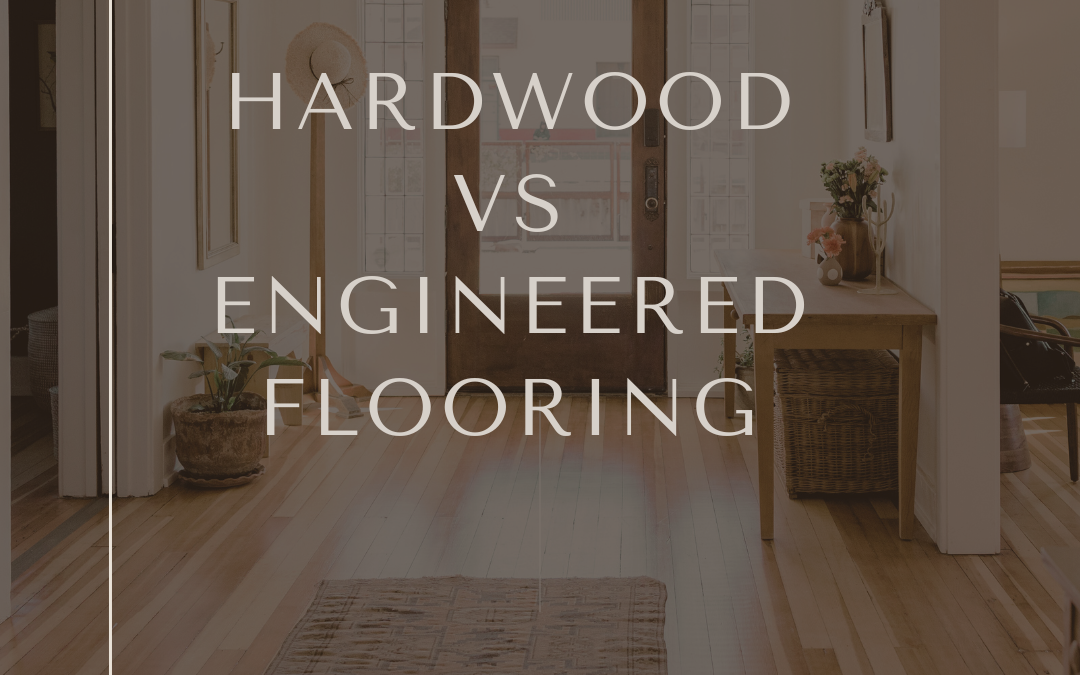The Differences Between Engineered and Solid Hardwood Flooring: A Comprehensive Guide by Ziba Hardwoods
In the realm of hardwood flooring, two popular options stand out: engineered and solid hardwood. Understanding the disparities between these choices is crucial for making informed decisions about your flooring needs. At Ziba Hardwoods, we specialize in providing insights into the world of architectural wood products, and in this guide, we’ll delve into the nuances that set engineered and solid hardwood flooring apart.
Composition:
Engineered Hardwood: Comprises multiple layers, including a top layer of hardwood veneer bonded to plywood. This construction enhances stability and resilience against moisture fluctuations.
- Solid Hardwood: Crafted from a single piece of wood, offering unmatched authenticity and durability. Its homogeneous structure makes it more susceptible to expansion and contraction due to humidity changes.
Installation Options:
Engineered Hardwood: Suitable for various installation methods, including floating, glue-down, or nail-down, providing flexibility for different subfloor types, including radiant sub-floor
- Solid Hardwood: Typically installed using glue and nail-down methods, requiring a sturdy subfloor to accommodate its expansion and contraction tendencies. Can still be installed over radiant sub-floor.
Durability and Longevity:
Lifetime Expectancy:
Engineered Hardwood:
Quality Engineered hardwood flooring typically lasts as long as solid and can be sanded and refinished.
Solid Hardwood:
Solid hardwood flooring is known for its durability and longevity. With proper care and maintenance, solid hardwood can last for generations. It can be sanded and refinished multiple times throughout its lifespan, allowing it to maintain its original beauty for decades or even centuries.
Appearance and Variety:
Engineered Hardwood: Available in a wide array of wood species and plank sizes, providing versatility in design options. From above floor looks exactly the same as solid.
- Solid Hardwood: Exhibits natural variations in color, grain patterns, and knots (depending on grade), enhancing its aesthetic appeal and showcasing the authenticity of real wood.
Maintenance:
Engineered Hardwood:
- Engineered hardwood generally requires less maintenance compared to solid hardwood.
- Regular sweeping or vacuuming to remove dust and debris is recommended.
- Spills should be cleaned promptly to prevent moisture damage.
- Depending on the finish, occasional mopping with a damp cloth or hardwood floor cleaner may be necessary.
- Refinishing is possible, typically 3 sandings with the wear layer that we provide.
Solid Hardwood:
- Regular sweeping or vacuuming to remove dust and debris is essential.
- Spills should be cleaned immediately to prevent staining and warping.
- Periodic refinishing may be necessary to maintain the appearance and integrity of the floor, especially in high-traffic areas.
- Humidity levels should be monitored to prevent expansion or contraction of the wood.
Cost:
Engineered Hardwood:
- Prices for unfinished engineered wood floors typically range between $9.50 and $12.50 per square foot.
Solid Hardwood:
- Solid hardwood flooring is known for being one of the more expensive flooring options.
- Prefinished solid hardwood flooring can cost around $15 per square foot.
- On average, unfinished solid hardwood flooring is priced between $8 and $15 per square foot.
- While solid hardwood may have a higher upfront cost, its longevity and ability to be refinished over time can provide long-term value and investment in the home.
Resale Value
Hardwood Flooring
When it comes to selling your house, hardwood flooring is often considered a premium add-on that can increase the resale value. The longevity benefit of hardwood flooring and the premium quality are often a selling point for potential homebuyers. On average, installing hardwood floorings can boost the price of your home by as much as 2.5%.
Engineered Wood Flooring
Because engineered wood flooring looks almost precisely like solid hardwood, it’s rarely a turn-off for potential buyers..
Choosing between engineered and solid hardwood flooring boils down to your specific needs, preferences, and the characteristics of your living space. At Ziba Hardwoods, we offer a diverse range of custom-milled architectural wood products, including both engineered and solid hardwood options, ensuring that you find the perfect flooring solution tailored to your unique style and requirements. Explore our collection today and elevate your space with timeless elegance and unmatched quality.
FAQs
- Can hardwood flooring be installed in bathrooms or other moisture-prone areas?
- While hardwood flooring is not recommended for areas with high moisture levels, such as bathrooms, engineered hardwood can be a suitable alternative due to its increased resistance to moisture and humidity. It’s essential to follow manufacturer recommendations and properly seal the floors to minimize moisture damage.
- How can I protect my hardwood floors from scratches and dents?
- To protect hardwood floors from scratches and dents, consider using furniture pads on the legs of chairs and tables, placing rugs or mats in high-traffic areas, and avoiding wearing shoes with sharp heels indoors. Additionally, regular sweeping or vacuuming can remove debris that may cause scratching.
- What is the difference between prefinished and unfinished hardwood flooring?
- Prefinished hardwood flooring comes with a hand or factory-applied finish, making it ready for installation immediately without needed to be sanded and finished on site. Unfinished hardwood flooring requires finishing on-site after installation, allowing for custom stain and finish options.
- Can hardwood floors be installed over radiant heating systems?
- Yes, hardwood floors can be installed over radiant heating systems, but it’s essential to use engineered hardwood or solid hardwood with specific installation guidelines provided by the manufacturer. Proper acclimation of the flooring and gradual temperature adjustments are crucial to prevent damage from expansion or contraction.
- How often should hardwood floors be refinished?
- The frequency of refinishing hardwood floors depends on factors such as wear and tear, traffic levels, and the type of finish used. Generally, solid or engineered floors may need refinishing every 10-15 years.


Recent Comments